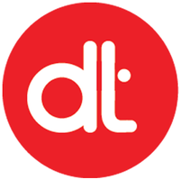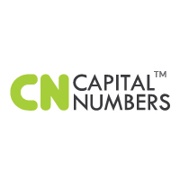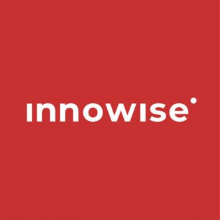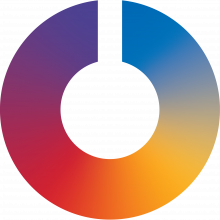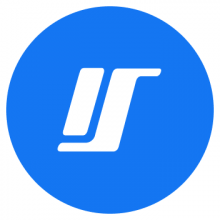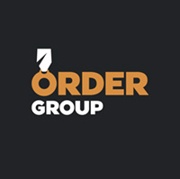
There are 22 Companies in Norway
that provide Angular Development Services!
The crisis has bred opportunity for Norway over the past decade. After global economic and oil slumps threatened the Nordic country’s most traditional industries, a burgeoning digital startup ecosystem has developed, offering more than just a silver lining
Discover Top IT Companies in Norway specialized in Angular and other related services. Find the best IT service providers for your projects.
Angular (formerly AngularJS) is a popular open-source web application framework maintained by Google and a community of developers. It's used for building dynamic, single-page web applications (SPAs) and web-based applications in general. Angular provides a structured and organized way to create complex web applications by extending HTML with additional features and enabling the development of interactive, responsive, and maintainable front-end web interfaces.
Handpicked companies • No obligation to hire • 100% risk-free
Featured Companies in Norway
This month, the following Angular Development companies managed to provide an outstanding service and support. It's worth taking a look.
Golden Owl Consulting is one of the most prominent agile software outsourcing firms
Explore Top Angular Development Companies in Norway
Painless Innovations Provider. Hardware & software development company.
Digital Marketing & SEO Company in Norway. We work with clients in many different sectors. We deliver website and ecommerce solutions as well.
Intellectsoft is a digital transformation consultancy and software development company that provides cutting edge engineering solutions.
Empowering businesses with expert IT consultants and cutting-edge web and app development solutions.
At ZS Digitech, we are dedicated to taking local and international brands on exceptional marketing journeys.
Leading in digital marketing & software development. From logo, social media management to SEO, we've got your brand covered.
Services:
Cloudistudio, a marketing agency based in Norway offering various digital solutions to global brands across various industries.
Services:
We are an Oslo-based internet marketing agency that offers services ranging from SEO, PPC, Content Marketing and Advanced Web Analytics. Our client li...
Services:
We’re a knowledge-driven IT consulting company based in Norway, with offices in the US, India, Poland and Australia.
Digitalization is changing industries and we are helping your company maneuver through that change.
Filter Angular Development Companies in Norway by Cities
Dive deeper and find the company you need close to you or, from a specific city you prefer. Some of the best companies come from smaller places
Find more Angular Development companies around the world
TechBehemoths is the world's most advanced and user-friendly platform to match IT Companies with real clients without hustle.
The Norwegian ICT Industry: Tech Companies & Performance
The crisis has bred opportunity for Norway over the past decade. After global economic and oil slumps threatened the Nordic country’s most traditional industries, a burgeoning digital startup ecosystem has developed, offering more than just a silver lining.
Although not a direct consequence of those crises, Norway’s tech startup scene was accelerated by them, especially the international oil crisis, which saw a sector on which the country had depended for so many years come under new and unfamiliar pressures.
However, far from causing Norway to fold under the pressure, the oil crisis served as a positive link between the country’s former industrial landscape and its current tech-driven agility
Why working with Norwegian IT companies
An influx of digital efficiency tools, big data optimization, and machine learning technologies took place, and from that oil-centered genesis, those same digital aids began to branch out into other areas of the Norwegian economy.
IT companies from Norway not only managed to retarget their main directions but also continue to support the national economy by developing tools that digitalize other industries inside the country. Not a surprise though, Norway has always been up to date with the latest technologies and digital trends, which allows local companies to provide efficient services for export to various clients from across the globe.
What you should be aware of when working with Norwegian IT companies
The only thing that may stop you from contracting a Norwegian company to take care of your digital product or provide web and app services is the pricing. Like in all nordic countries, they differ, sometimes a lot from what you may find in the traditional western-European market.
Even though not an EU member state, Norwegian IT companies, and web agencies have access to the free EU market, which allows them to compete with the rest of the countries in terms of IT services
How reliable are Norwegian IT companies
The nordic business environment is healthy and steady, ready to be a challenge to the US, UK, Germany, France, and the list can continue. Unlike other European countries, Norwegian IT companies sell their services at higher rates and make them acknowledge the importance of the entire business process and investments done by the clients.
How does the Norwegian IT sector relate to the neighboring countries?
Having Sweden as the only land neighbor, and thus the only real competitor in the region, the Norwegian IT sector is well-set to change the game in the Nordic region. Tech companies from Norway compete in innovation, time-management, digital marketing, and e-business with the Swedish ones, making the entire industry progress even at faster rates.
Norway is a potential leading tech hub in the northern-European region. And once the economic priorities select the tech industry as one of the most important, it should be a matter of time until the country reaches the Swedish rate, and probably overpasses it.
What is Angular and what are its benefits for your projects?
Angular (formerly AngularJS) is a popular open-source web application framework maintained by Google and a community of developers. It's used for building dynamic, single-page web applications (SPAs) and web-based applications in general. Angular provides a structured and organized way to create complex web applications by extending HTML with additional features and enabling the development of interactive, responsive, and maintainable front-end web interfaces. Here are some key aspects and concepts of Angular:
-
Component-Based Architecture
-
Templates
-
Directives
-
Dependency Injection
-
Services
-
Routing
-
Observable and RxJS
-
Modules
-
Testing
-
Cross-Platform
Angular's structured approach, strong tooling, and vibrant ecosystem of libraries and extensions make it a powerful framework for building modern web applications. It is particularly well-suited for large and complex projects where maintainability and scalability are crucial.
Companies may choose Angular over other front-end frameworks for their projects for a variety of reasons, depending on their specific needs and priorities.
-
Google Backing: Angular is developed and maintained by Google. This association often gives companies confidence in its long-term support, stability, and continuous improvement. Google's involvement is seen as a sign of reliability and commitment to the framework.
-
Mature and Established: Angular has been around for a while and has a strong track record of being used successfully in large-scale enterprise projects. It has a well-defined architecture and best practices, which can be beneficial for maintaining and scaling applications over time.
-
TypeScript Support: Angular is built with TypeScript, a statically-typed superset of JavaScript. TypeScript provides better tooling, code maintainability, and catches errors at compile time, which can reduce bugs and enhance code quality, making it attractive to companies that prioritize robust code.
-
Full-Featured Framework: Angular provides a comprehensive set of tools, libraries, and features out of the box, including routing, form handling, HTTP client, and more. This can save development time and effort compared to integrating multiple third-party libraries in other frameworks.
-
Two-Way Data Binding: Angular offers powerful two-way data binding, which allows for automatic synchronization between the data model and the view. This feature can make it easier to develop interactive and responsive user interfaces.
-
Large and Active Community: Angular has a large and active community of developers and a wealth of resources, including documentation, tutorials, and third-party libraries. This can be beneficial for finding solutions to common problems and getting support when needed.
-
Enterprise-Ready: Angular provides features like dependency injection, modularity through modules, and a strong emphasis on testability. These characteristics are well-suited for building robust and maintainable enterprise-level applications.
-
Strict Coding Standards: Angular enforces a set of coding standards and best practices, which can lead to more consistent and readable code. This can be important for companies with multiple developers working on the same codebase.
-
Cross-Platform Development: Angular can be used for building both web and mobile applications. Companies looking to develop applications for multiple platforms may choose Angular for its ability to share code between web and mobile apps using technologies like NativeScript or Ionic.
-
Integration with Backend Technologies: Angular can easily integrate with various backend technologies and APIs. This makes it suitable for projects where the front end needs to communicate with different types of server-side applications.
-
Security Features: Angular provides built-in security mechanisms to help prevent common web vulnerabilities like Cross-Site Scripting (XSS) and Cross-Site Request Forgery (CSRF). This can be crucial for projects with high security requirements.
-
Ecosystem and Tooling: Angular has a rich ecosystem of tools, extensions, and IDE support, including Angular CLI for project setup and management. This can streamline development workflows and improve productivity.
Ultimately, the choice of Angular or any other framework depends on the specific project requirements, the development team's expertise, and the company's long-term goals. Companies evaluate various factors to determine which framework aligns best with their needs, resources, and priorities.
